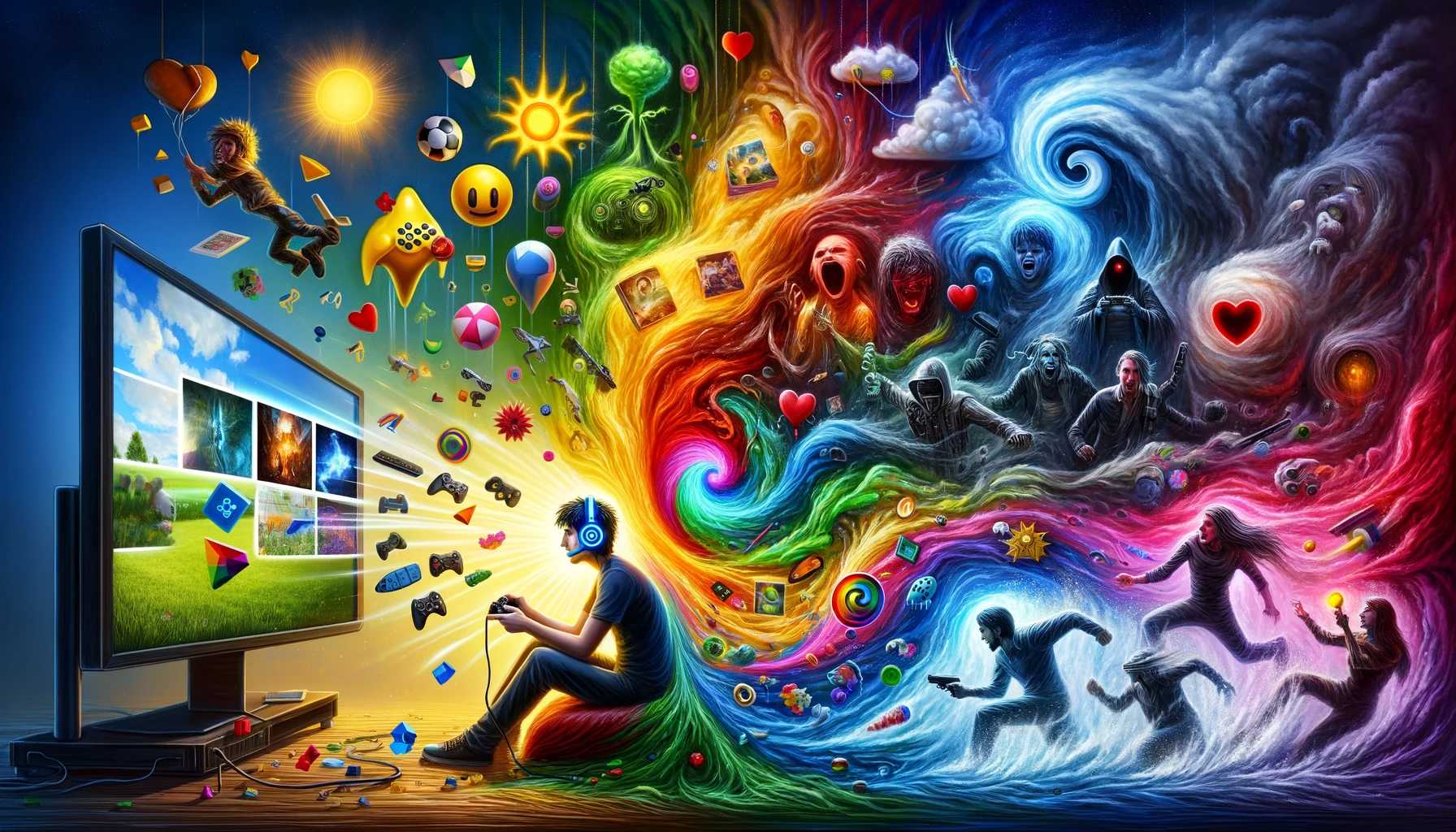Emotion is a strong feeling or conscious mental reaction driving from ones’ mood, circumstance, or relationship with others, directed towards a specific object and most times accompanied by physiological and behavioral changes.
Emotions can affect the perception of the game and the level of games played to satisfactions. There are no games that are not linked to emotions because they are sensory manifestations that are triggered and expressed.
Games trigger emotions in players, just like any other media. Some games are designed to be emotional roller coasters, with high highs and low lows. Others are designed to create a sense of calm or relaxation, while some games like horror games are designed to provoke fear and anxiety.
Games can also be a source of inspiration and creativity. They can spark new perspective on the world. Now the ball is in your court to choose the kind of game that best suits your mood.
Emotions Identification in Games
To identify emotions in ourselves, we look at our tones, how we react and respond to issues, when we look at emotions in others, we look at their facial expressions and body language. The intensity at which games are deigned, bringing out the challenging levels or competitive multi-players modes, the quest to win create a sense of achievement and mastery (happy mode), and for the loser in the game anger (revenge mode). Be it for fun or in a competition, that feeling or expression just come out.
How Playing Games Makes Us Happy
Having fun while paying is more than mashing buttons. Many of us feels happy when playing our favorite games, let’s see what science have to say concerning gaming and happiness.
Research shows that the quality of life is long-term care facilities residents. In 2021, children that were undergoing chemotherapy were given video games, drawing, and storytelling with a control group that received no extra activities. Those that played video games there happiness level increased at the highest level. It was greater than the drawing and the storytelling.
Science shows what most of us already knew the impact of games and how it brings out the best and also makes us happy. Additional benefits of games beyond enjoyment are self-relaxations, boasting self-esteem, family connections, and also helps in socialization.
Benefits of Games
Relief Stress: Studies have linked gaming to reducing symptoms of anxiety. During gaming you gain a sense of calm possible not from the fist-pumping excitement of victory, but both contribute to a sense of happiness.
Character Realization: When playing we become a character. As we follow through from low-level nobody to becoming the hero of the season, we see meaning and purpose in the lives of the character. Through the sense of immersion and feeling of taking over their quest-lines, we gain purpose and meaning.
Socialization: Socialization is the integral part of all games, whether it’s an in-game chat, Discord server, or playing in person on consoles. Games that allows players to interact with each other improves social skills, like cooperation, communication, and empathy.
Improves Problem Solving Skills: Games often require players to think creatively and make decisions in the moment, which can improve problem solving ability. This is beneficial in situations where you need to think quickly on your feet, examples, job interview or high pressure situation at work.
Hand-Eye Coordination: Games often require players to move quickly and accurately, which can improve hand-eye coordination. This can be especially beneficial for activities that require fine motor skills, like playing an instrument or performing surgery. Be in the know that games are created equal when it comes to improving hand-eye coordination. Games that require precise movement and quick reflexes, like first-person shooters or rhythm games, are often better for this than games that are more turn-based or strategy oriented.
Memory and Attention Span: Studies have shown that playing video games can improve both short-term and long-term memory. This is likely due to the fact that games often require a lot of information. Games improve focus and concentration, as well as the ability to switch between tasks. Games like puzzles are often more beneficial because they require high level of concentration.
Games can teach players how to set goals, take risks, and handle failure. They can also provide a sense of accomplishment and help build self-esteem and confidence.
